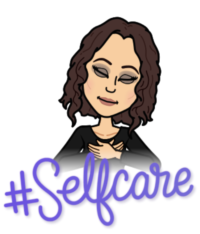
A recent conversation regarding social emotional learning (SEL) caused me to rethink my focus as an educational leader. I have been working in a couple of schools with high populations of students who have faced trauma and/or have been diagnosed with mental illnesses. As such, I have been doing a great deal of exploration on the topic of SEL, and its connections to Universal Design for Learning (UDL), a framework based on neuroscience that guides educators in increasing accessibility and removing barriers for each and every student. My goal in exploring these topics is to help students learn to practice self-care in and out of the classroom. In this quest, my focus with educators had begun with empathy for students. This is how I approached the topic with the adult learners I serve. However, I am now considering altering my approach.

Should We Start with Empathy for Students?
Currently, when I introduce UDL to educators, very early in the process I ask them to create an empathy map about a student with whom they struggle(d) to connect. As we continue exploring UDL, which is designed to provide supports using a student centered approach that is proactive rather than reactive, educators are continually asked to refer to the empathy map to apply their learning of UDL to identify ways to meet the needs of this student. Throughout the work, I call out ways that I have designed the professional learning experience with UDL guidelines in mind, to meet the unique needs of adult learners. While this has proven to be effective, I am considering iterating my future work with educators.
How are SEL and UDL Connected?

As I began to learn about SEL, I turned to the CASEL core competencies within the framework. I immediately saw connections to UDL and was eager to learn more with the goal of supporting educators in building the capacity of students to develop coping skills, self-regulation, and relational competency. The goal of UDL is to create expert learners, students who are purposeful and motivated, resourceful and knowledgable, and strategic and goal driven. SEL promotes self awareness, knowing thyself. As students are immersed in SEL, they have a solid foundation to guide them toward the internalize stage of UDL, guidelines nine and six in particular. Both SEL and UDL promote self-reflection and empower students to make decisions that best meet their needs (emotionally, socially, behaviorally, and academically). I had not considered the need for educators themselves to consider their own connection to SEL and UDL. It had not become personal, it was all about students.

What About Educators Themselves?
SEL and UDL are great for students. But is it most appropriate to teach educators about these topics by beginning with empathy for students? I thought so. Now, I am not so sure. A colleague of mine informed me of a couple of SEL workshops she attended that began with educators completing a self-assessment of their own strengths and opportunities for growth within the SEL competencies. Next, the attendees joined a group to discuss their assessment results with others. To be honest, when this activity was explained to me, my first thought was, “That may be a moment where, as an adult learner, I may conveniently yet politely excuse myself from the room for a break.” As an educator, why would I want to admit my own social-emotional vulnerabilities with colleagues, even more so if the culture lacked trust? This concept made me feel very uncomfortable.
I continued asking questions of my colleague about this activity, about beginning with educators’ own social emotional learning before focusing on ways this would apply to their students. As the conversation continued, I began to shift my thinking. As I speak with educators, I have a tendency to focus so heavily on students that I forget that the learners in front of me are also humans with social emotional needs. We are social beings with emotions that affect our work with our students. How can I ask adult learners to guide students in SEL and UDL if I do not ask them to first consider how it applies to them?
Our Own Self-Care Is Vital
I am reminded that as educators, we need to focus on our own self-care first and foremost before we are able to be most effective for the learners we serve. While it is true that a collaborative SEL activity may backfire in a culture that lacks psychological safety, it could still be valuable for educators to self-reflect on an individual basis. I am continuing to ponder how to best encourage educator self-care. I am also working on practicing better self-care myself, and I am looking at SEL for ideas on how to do this more effectively. Perhaps if adult learners make a personal connection with SEL and UDL, they will be better equipped and motivated to encourage students to do the same.

Nice information
Thank you for taking the time to comment.